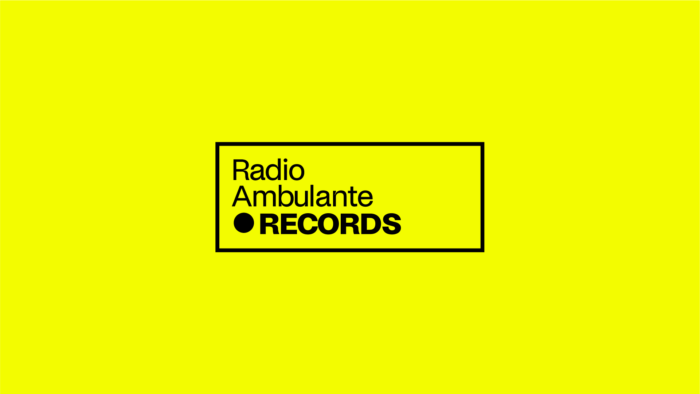Music has always been a key component of Radio Ambulante‘s podcasts. The Spanish-language audio storytelling company, now in its 13th year, regularly uses music in its shows to guide, enhance, and underscore emotion.
Listeners can now stream some of that original music on its own, with the launch of Radio Ambulante Records, the company’s own recording label. The first compilation released today, “Atmósfera infinita” (Infinite Atmosphere), includes 60 instrumental tracks composed and produced exclusively for its three shows: Radio Ambulante, news explainer show El hilo, and its first series, Central, about El Salvador’s president Nayib Bukele.
The record and label are meant to celebrate and elevate the sound designers who carefully compose and score each episode. Since Radio Ambulante started creating its original music in 2016, it’s produced more than 4,500 tracks. The first album is just a sampling of their work.
I talked to the co-founders, CEO Carolina Guerrero and executive producer Daniel Alarcón, about the launch, the importance of owning your work, and giving back to the listening community. Our back-and-forth has been edited for length and clarity.
Hanaa’ Tameez: Where did the idea for Radio Ambulante Records come from?
Carolina Guerrero: It just made sense to us — we’ve prided ourselves on independence, editorially and creatively, since we launched 13 years ago. We’ve been scoring our podcasts with original music since 2016, because we wanted to make sure that everything in the show was ours, that we could control all aspects of our intellectual property. That gave us the most freedom to work across platforms, create our
language learning app, and never have to worry about third-party rights.
But if original scoring was initially a business decision, it turned out to be a really important creative opportunity as well. Eight years later, our music library includes thousands of songs, and we wanted to showcase the amazing people behind that work.
Tameez: Why was this important to do now?
Daniel Alarcón: We’ve been kicking this idea around for years. Our composers,
Andrés Azpiri,
Remy Lozano,
Ana Tuirán, and
Elías González, are all incredibly talented, serious musicians. So much of podcast music is background, feels like filler sometimes, but with our composers, it never is. The music complements our journalism, of course, but we’re really proud of the fact that it stands on its own.
We just wrapped Radio Ambulante’s 13th season, after a very challenging year in which our audience supported the entire company in a very big way. We doubled our paid membership program, and were just blown away by the generosity and solidarity that our listeners showed us. So given all that, we felt it was the right time to give something back to our community, and at the same time celebrate the creative accomplishments of our incredible team of musicians.
Tameez: Tell me about the first album, “Atmósfera infinita”. How did you decide on the name?
Alarcón: The team was looking for a name that captured the idea of a diversity of moods, the broadest possible spectrum of human emotion. Our hope is that if you listen to the album, you’ll go on an emotional journey, like you do when you hear a Radio Ambulante story.
Tameez: What has the audience feedback to your original music been like over the years?
Guerrero: Not long ago, we decided to figure out just how long it takes to produce a Radio Ambulante story, and the number we came up with — which includes reporting, writing, editing, producing, fact-checking, etc. — was 900 hours. A big chunk of that time is spent on sound design and composition.
Our audience understands that the care we put into our journalism, we also put into every aspect of our work. Because we really care about this! When you work in audio journalism, you have to think in terms of audio first, not just when you’re reporting, but when you’re thinking about how to present that story in sound. Our listeners notice, they appreciate it, and they love that we’re doing this experiment. We know because they tell us.
Alarcón: At Radio Ambulante Studios, we work with creatives from all over Latin America. Reporters and producers, obviously, but also novelists, illustrators, photographers, animators and musicians like Andrés, Rémy, Ana and Elías. You almost never hear their voices on any of the pods, but neither Radio Ambulante, El hilo or Central would be the same without their artistry and creativity. They write music in response to every turn in every story, and there’s no one who listens to or thinks about our scripts and our tape as carefully as our sound designers.
Tameez: What is the growth plan for Radio Ambulante Records? How will it work day-to-day and how do you plan to fund it?
Alarcón: For now, the plan is to launch a couple of compilations a year, each with about 60 tracks. It’s not a money-making operation at the moment, and it’s not intended to be. Nor is it expensive — the heavy lift is the work of composing, which has already been done, already been paid for, and the curation, which is difficult when you’re choosing from a library of over 4,500 songs, but which is also the fun part! We think of Radio Ambulante Records primarily as a community building exercise, a creative gift to give our listeners.
